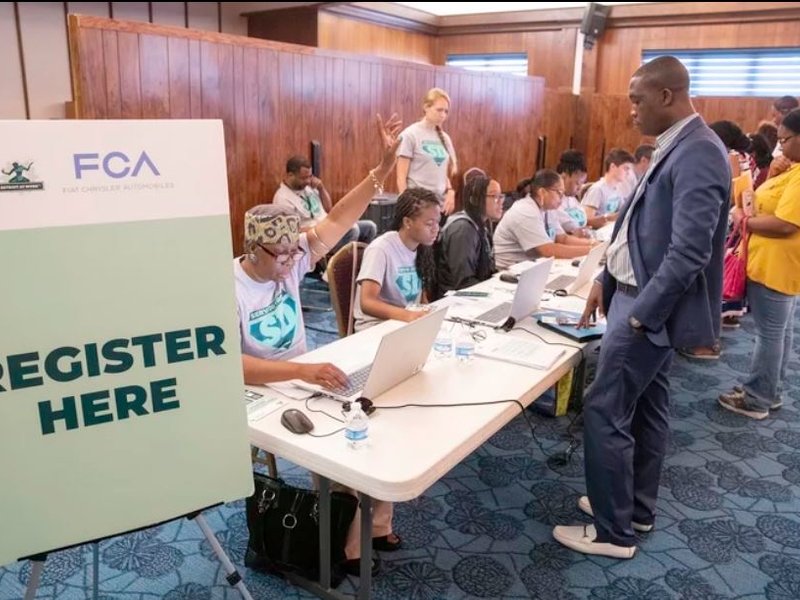
DETROIT — Fiat Chrysler Automobiles is taking a second round of applications from Detroit residents for jobs at plants it is expanding in the city for $2.5 billion.
FCA must give Detroiters first priority to apply for most jobs at the plants as part of its community benefits agreement with the city.
Residents must attend work readiness events to qualify to apply for the positions. Mayor Mike Duggan’s Detroit at Work employment and training program is running 400 more of those events through March.
FCA must fill 4,950 jobs for its converted Mack Avenue engine plants and a retooled Jefferson North Assembly Plant.
Detroit at Work’s first round of more than 300 FCA-centered events ran from June to September. About 39,000 Detroiters initially showed interest by signing up through Detroit at Work’s website, according to Nicole Sherard-Freeman, Detroit’s executive director of work force development.
Of those, 12,500 completed Detroit at Work events and successfully preregistered for access to the Sept. 9-29 application period. About 8,000 started the application, 5,000 finished it and 3,500 were selected for interviews after making it through math, mechanical reasoning and other assessments.
In this second round, applications for pre-qualified Detroiters open in April, then open to the general public afterward. Residents are given preference after obligations to a number of UAW members that the union would not disclose.
Sherard-Freeman said she could not estimate how many more applicants the city hoped to see, but that Detroit at Work had capacity for 22,000 more.
New plans
The second window wasn’t originally part of FCA’s plan.
“The reason we started hiring in 2019 was because we didn’t know [when the start of production] would occur,” said Mike Lackaye, head of talent acquisition for FCA’s Detroit assembly plants. “We realized once we knew that the launch would be [around end of 2020] that we now had another opportunity to do another recruiting event like we did in 2019.”
FCA can target those who hadn’t graduated high school in time for the first round or those who didn’t pass the first assessment and want a second try, Lackaye said.
Asked whether lower-than-expected results contributed to the need for a second push, Sherard-Freeman said it was “quite the opposite.”
Said Lackaye: “I’m pleased. You always want as many as possible, and I think we’re on track.”
FCA interviewed some candidates in December, but most interviews will take place in the first and second quarters, with offers coming one to two weeks afterward. The city estimated in September that interviews would start in November, but Lackaye said Thursday that adding a safety component to the testing delayed the timeline.
Delays, barriers
Technology and Internet issues have been a barrier to some in completing the application. Detroit at Work expects to better prep Detroiters for the application process this time around, Sherard-Freeman said.
The 4,200 production operator jobs that are subject to the Detroiter-first deal require a high school diploma or equivalent, an ID, a drug screening and physical and a successful application, according to Detroit at Work’s website. Production jobs start at $17 per hour with increases up to $29.94 per hour under the new FCA-UAW contract.
Outside of that, FCA has started hiring for salaried leadership positions and around 345 skilled-trades worker positions. The automaker would not say how many it has hired.
“With electricians, it’s a very talent-short competency right now, not a lot of people inside or outside of Detroit,” Lackaye said. “So any electrician I can get, we are engaging immediately.”